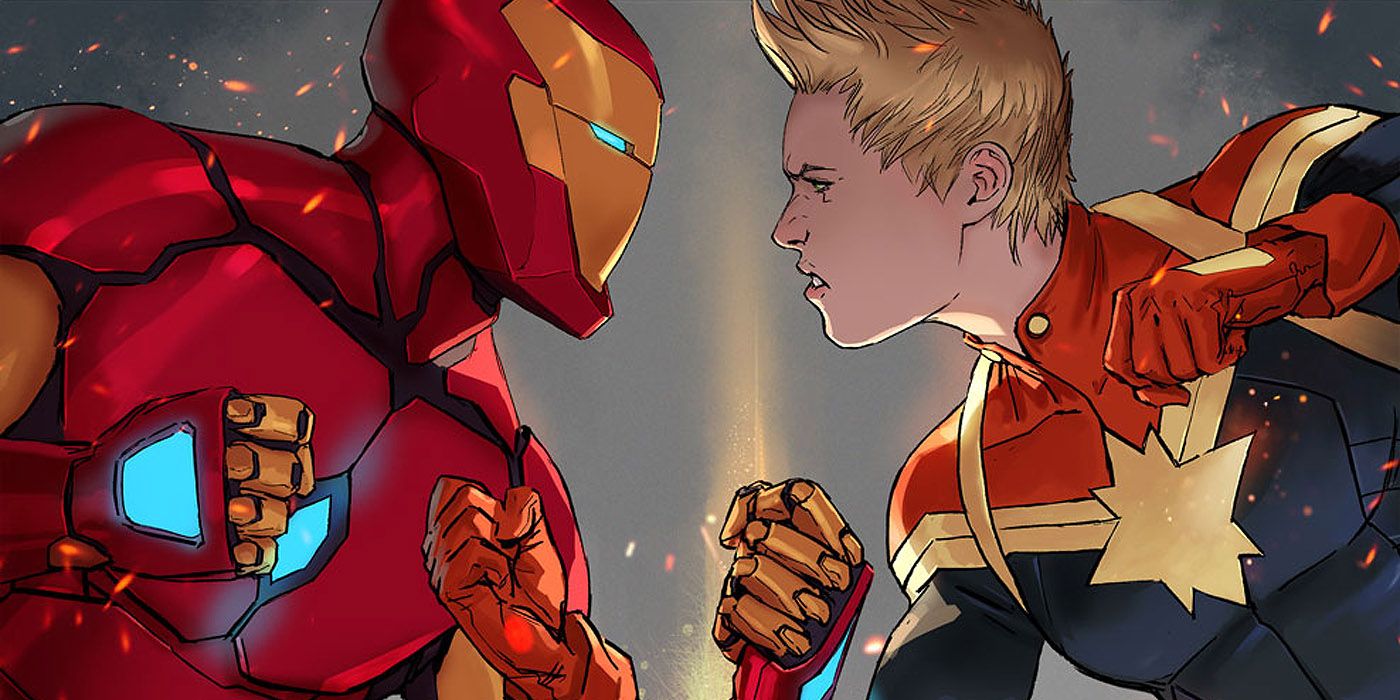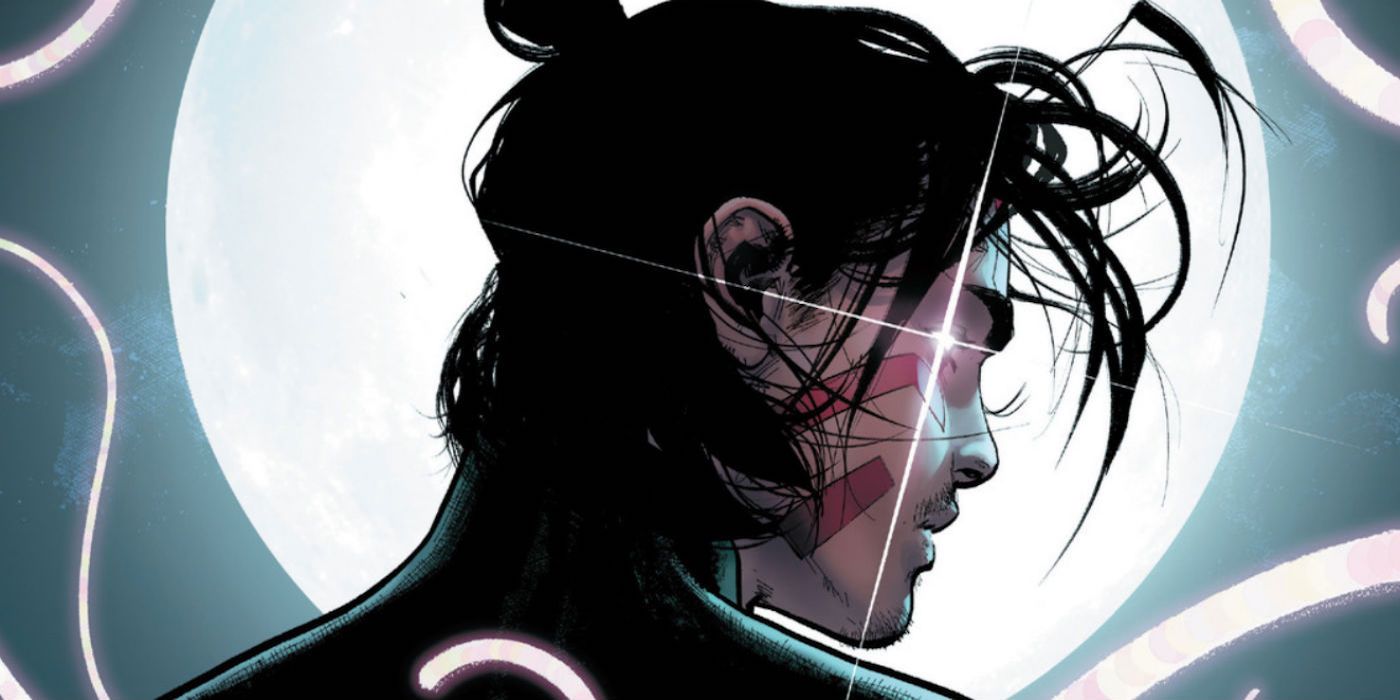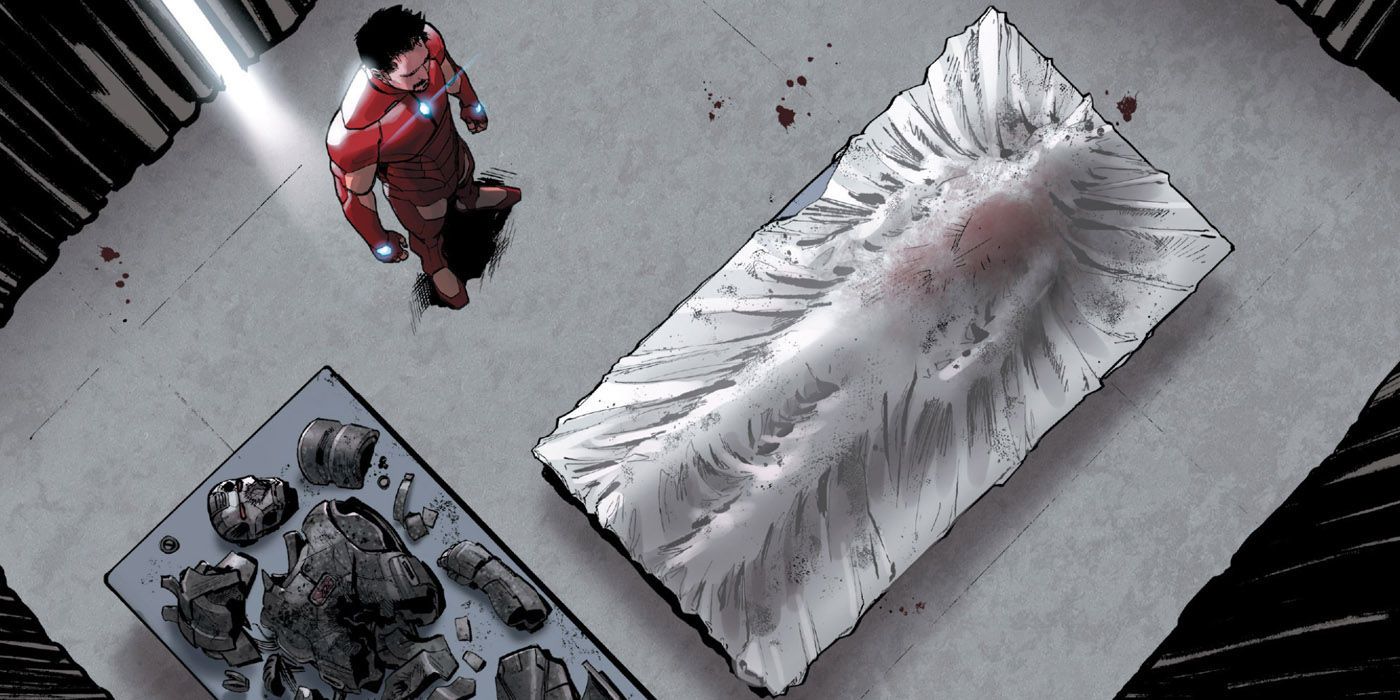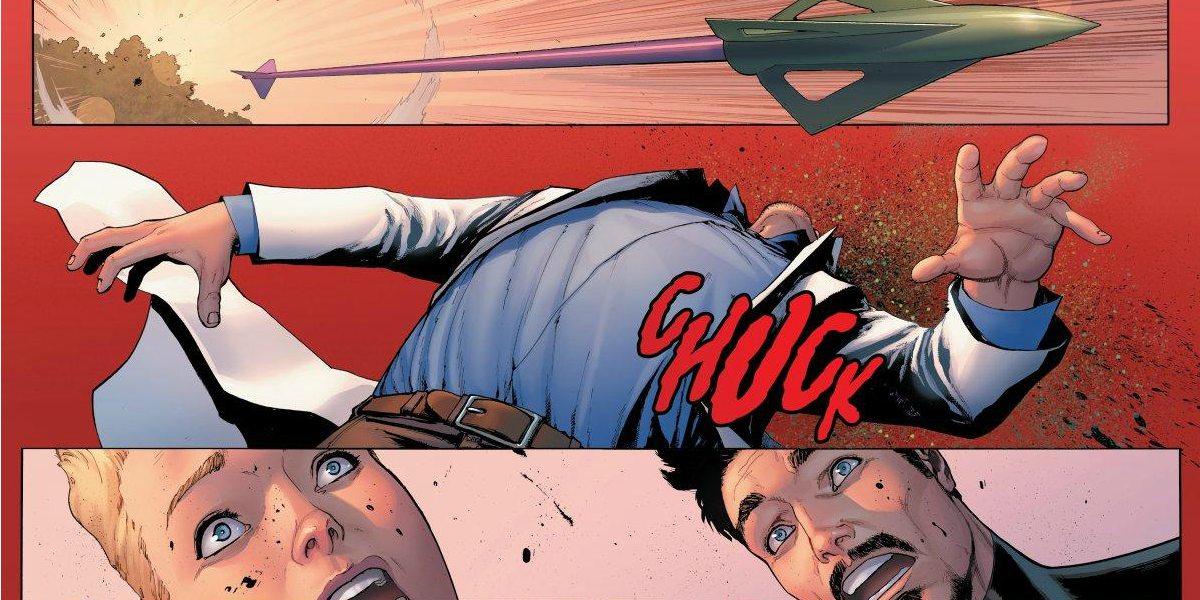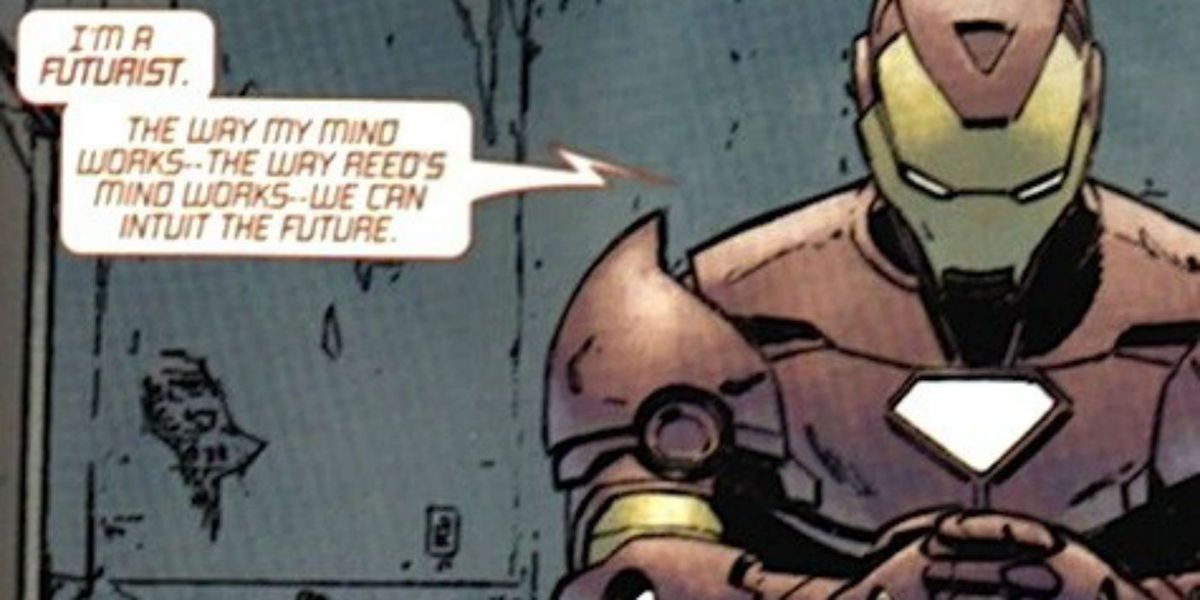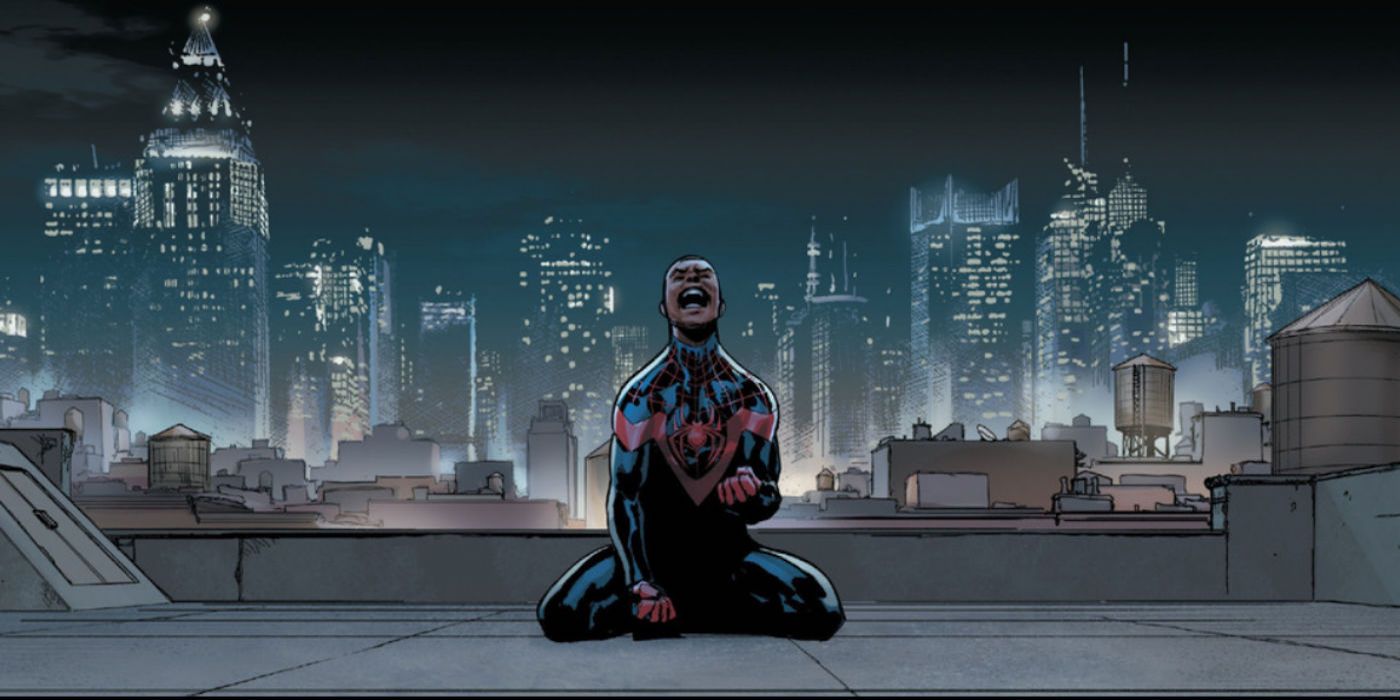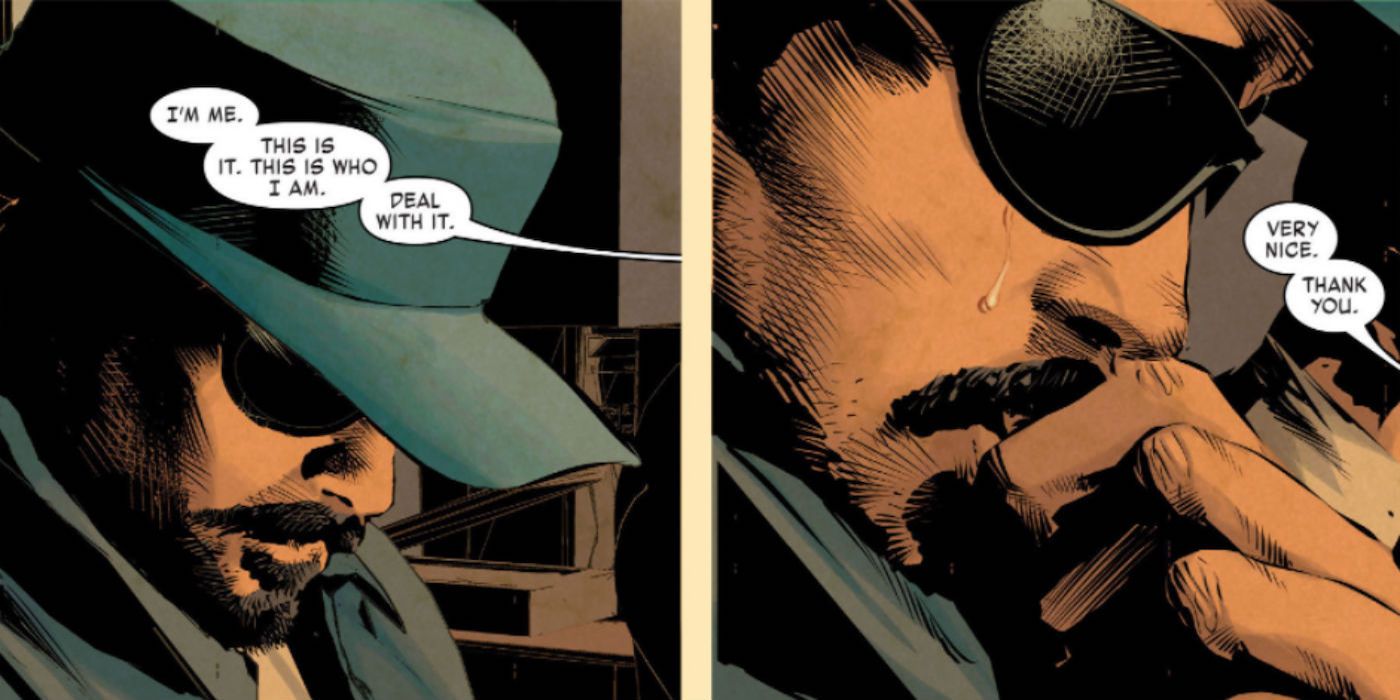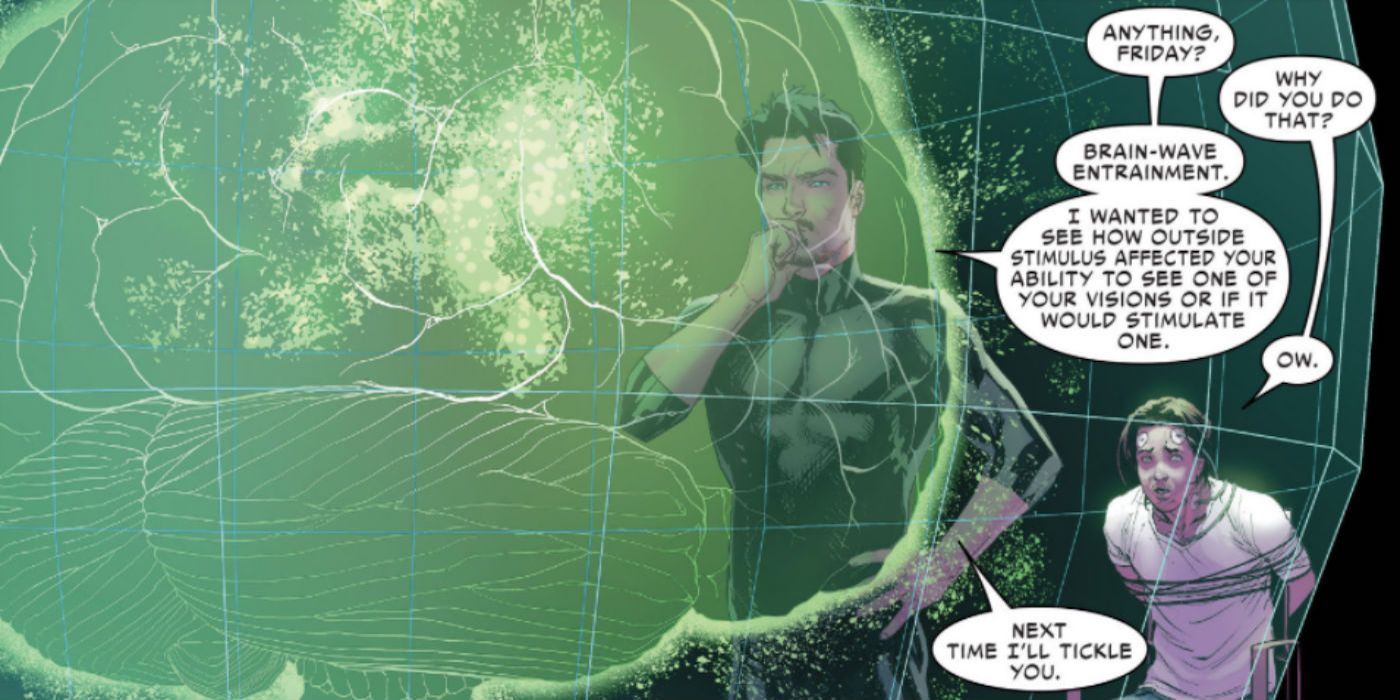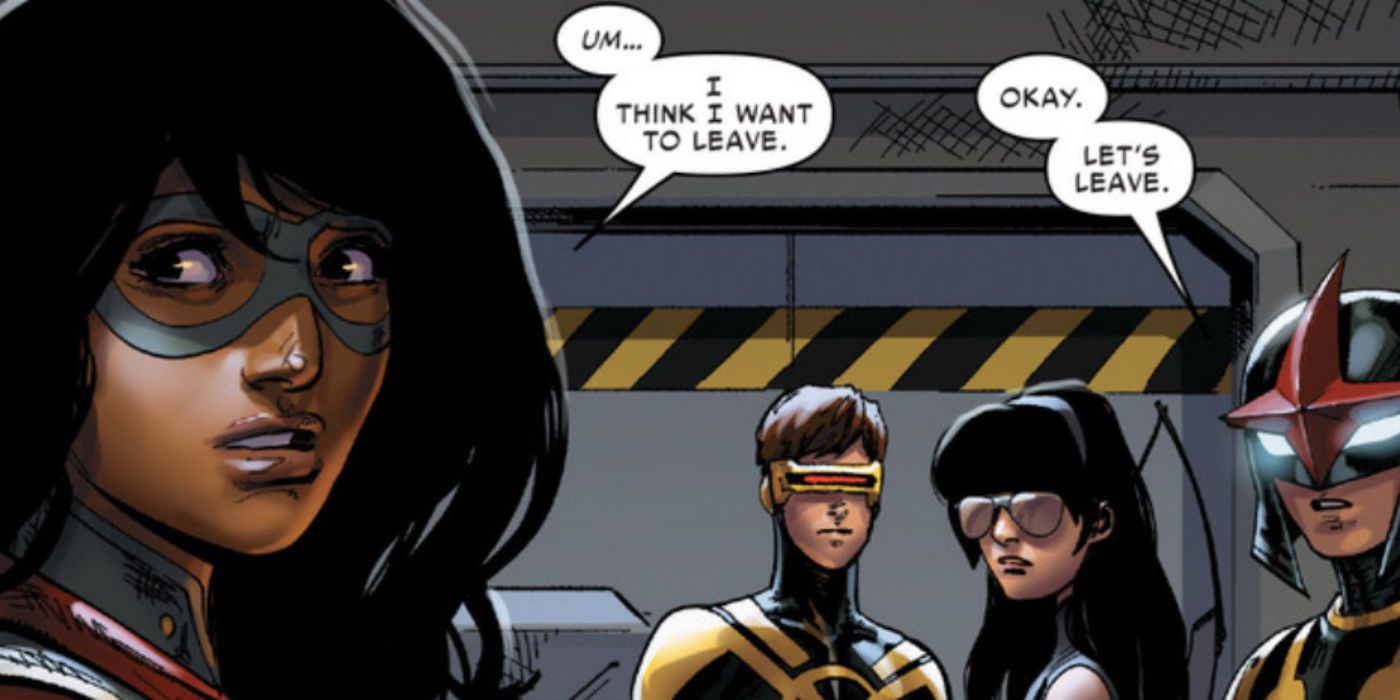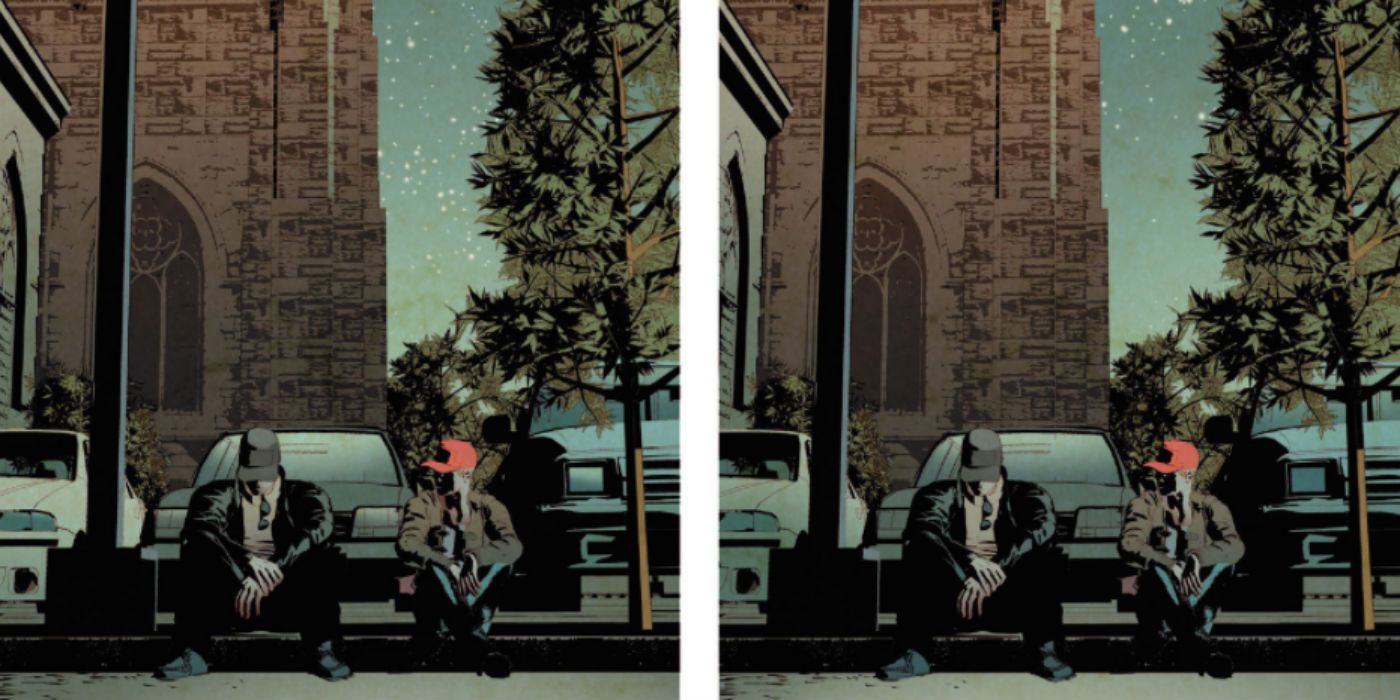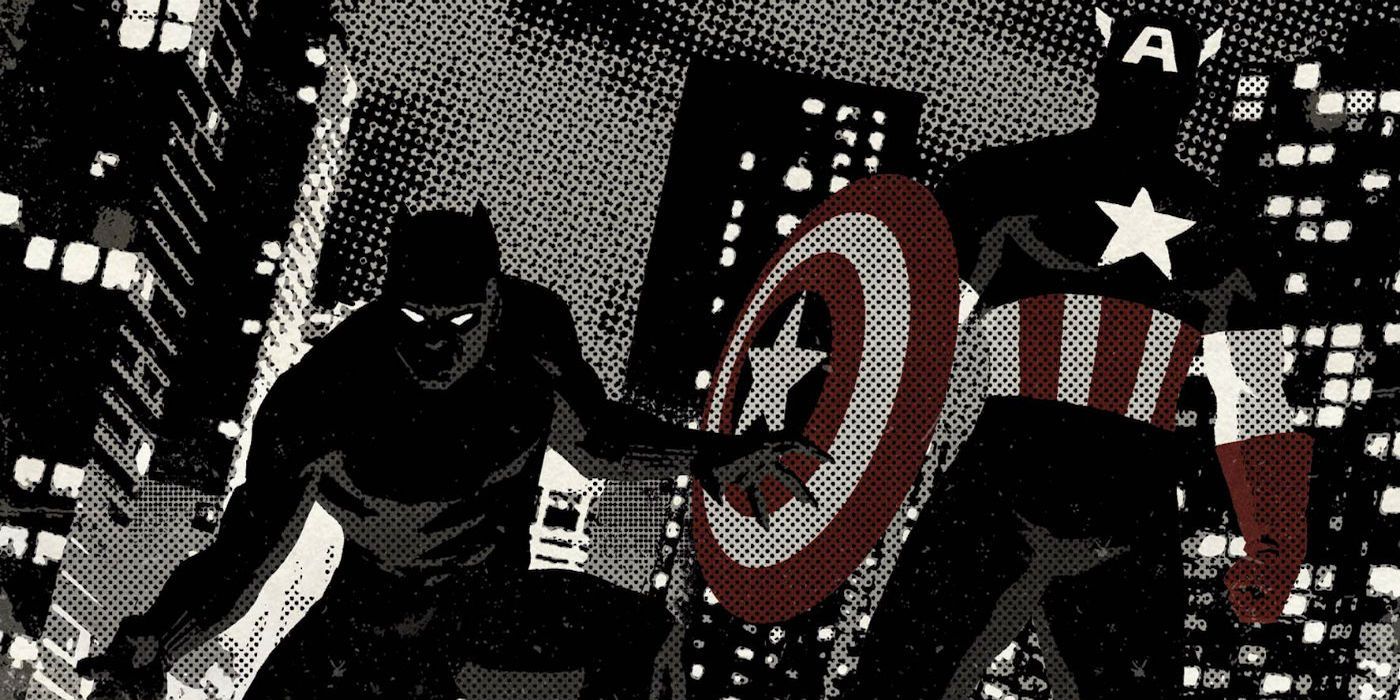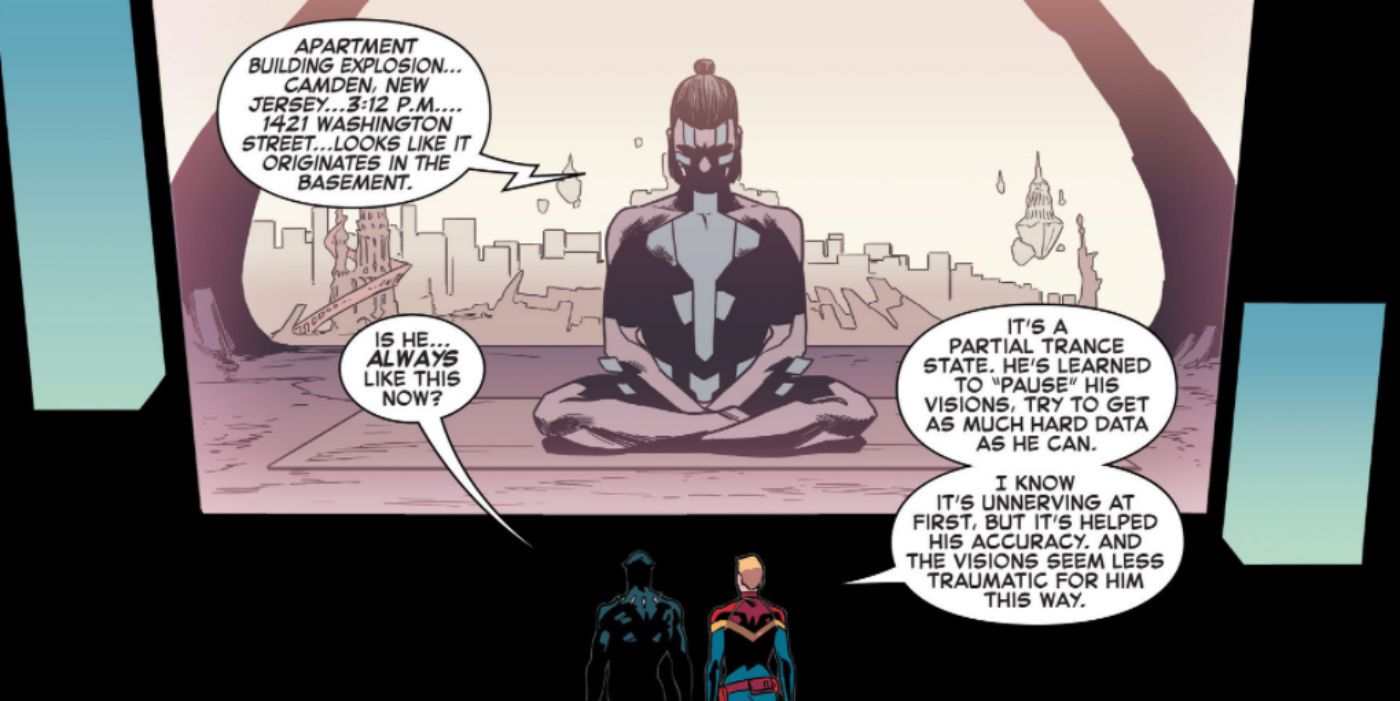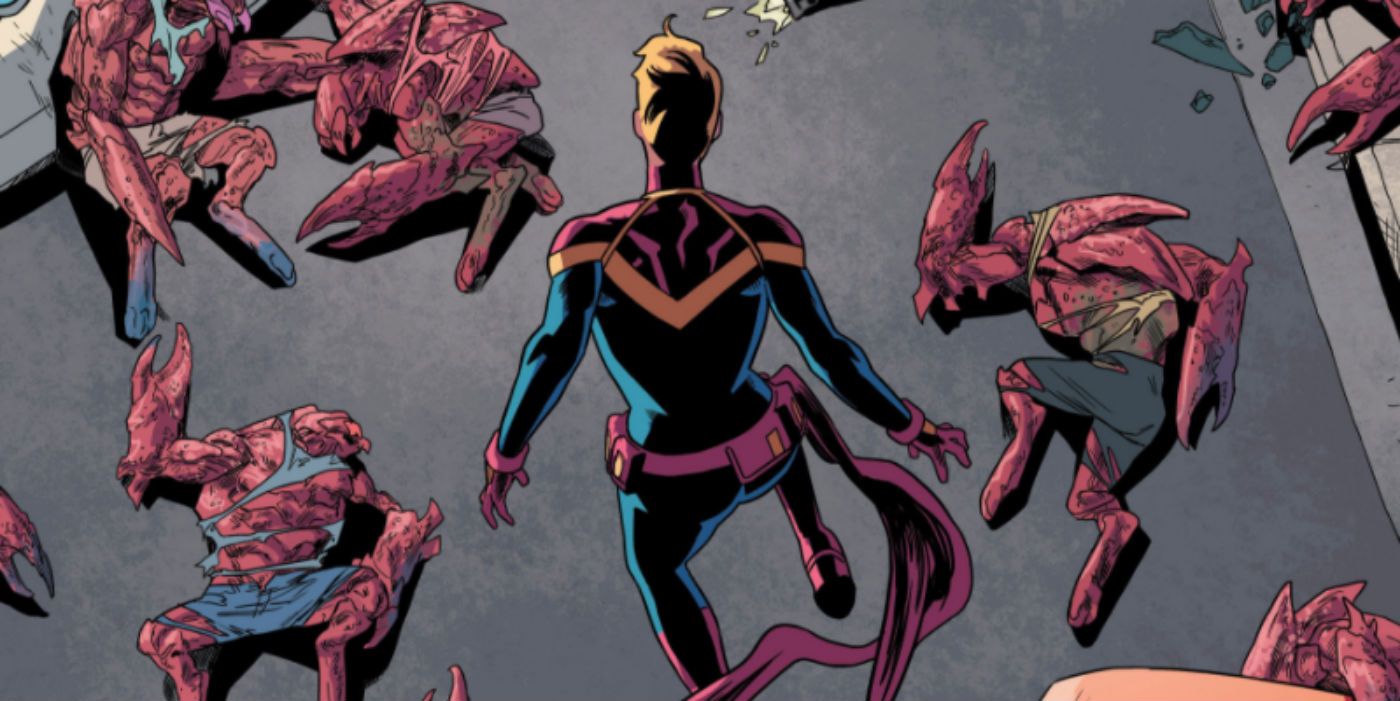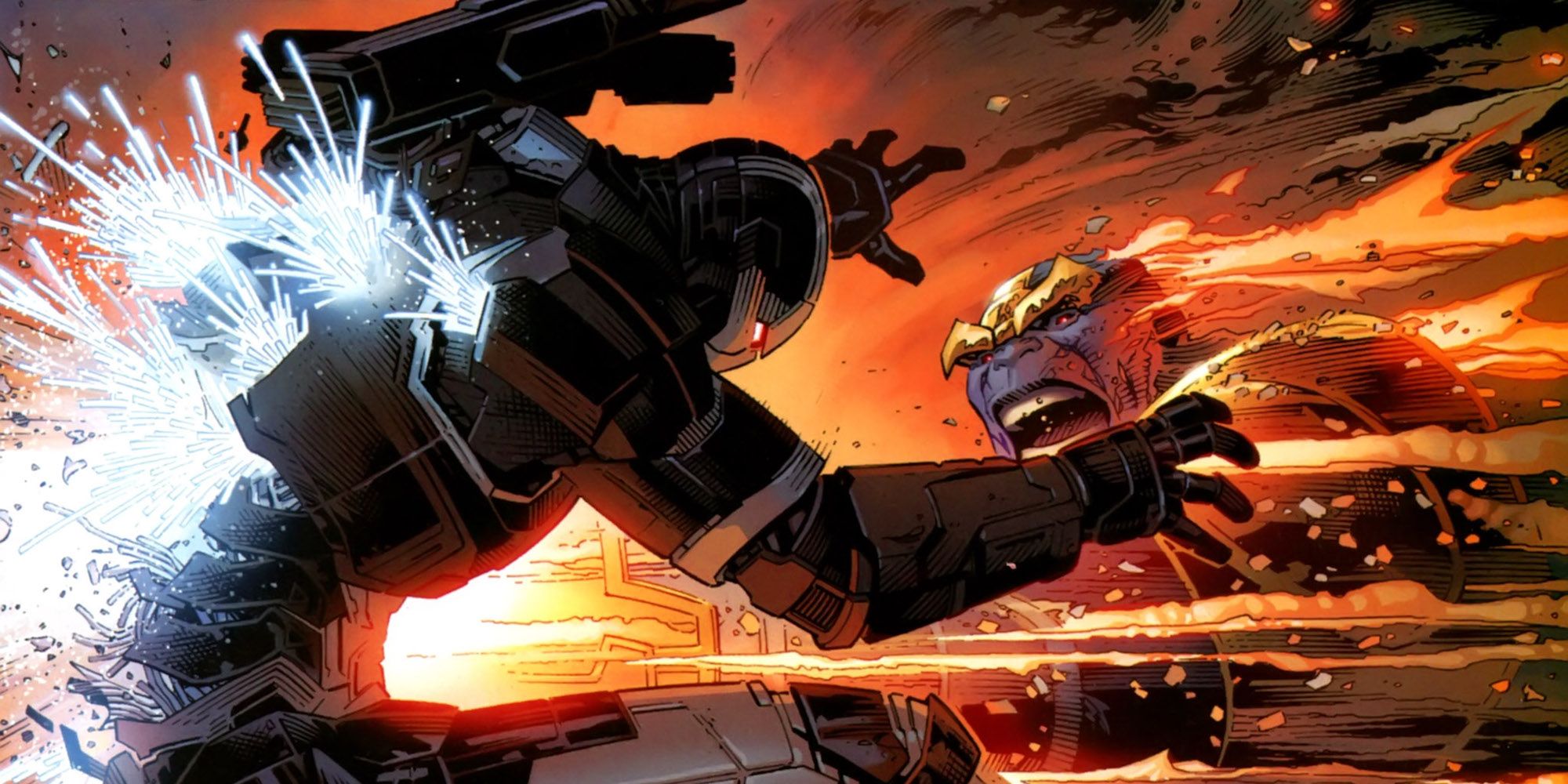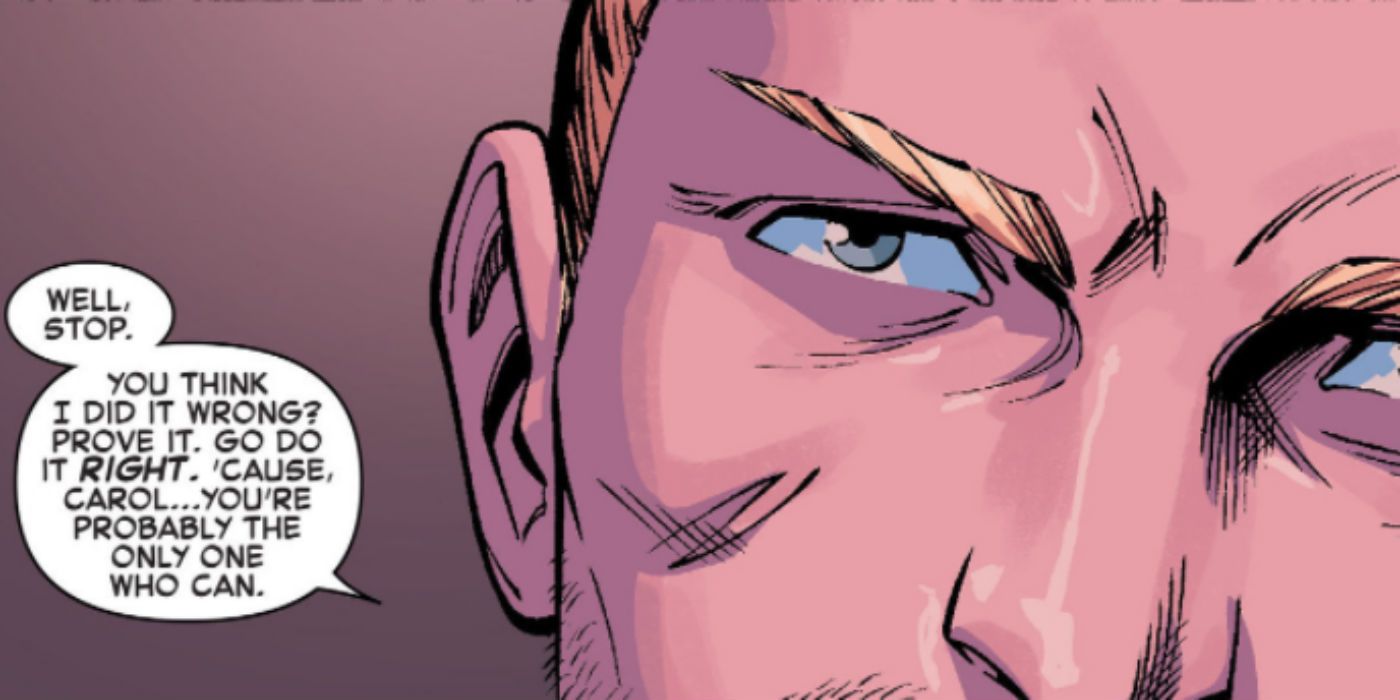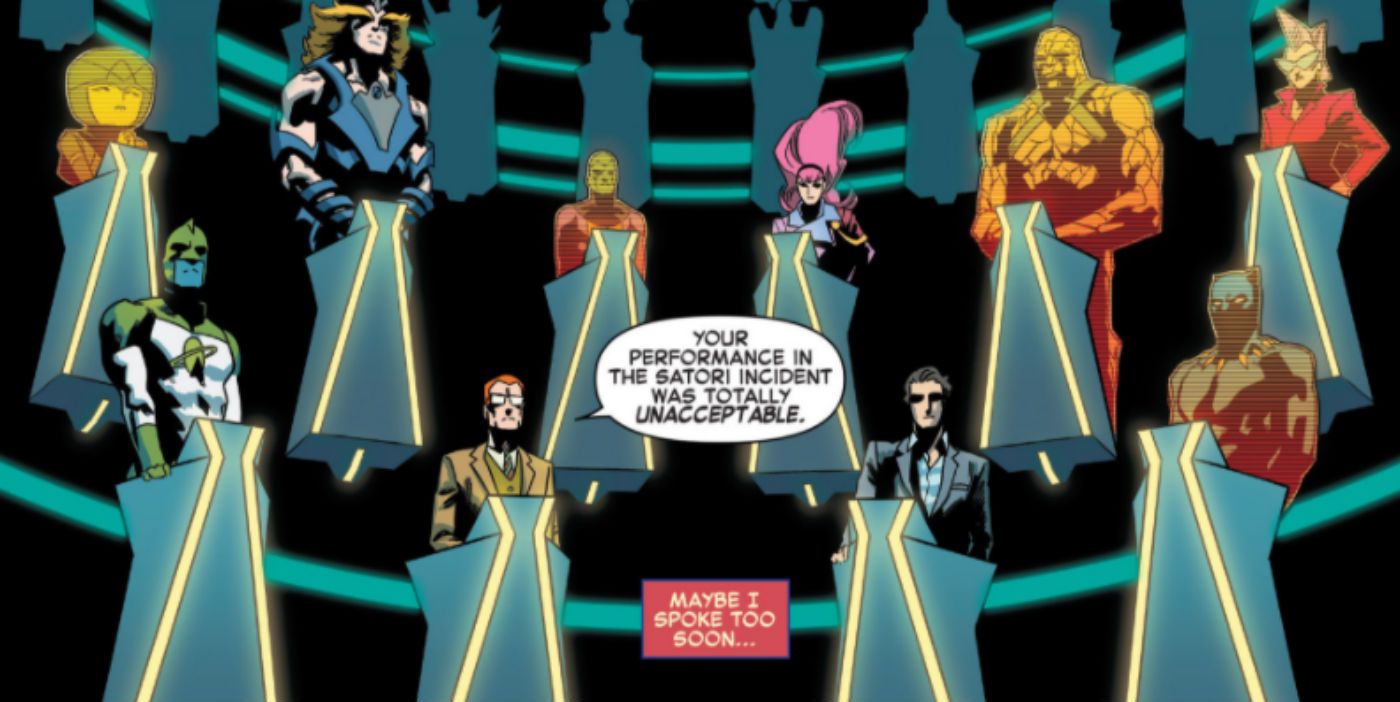The Avengers have had their fair share of conflicts. Unfortunately for them (and the world), when super poweredindividuals come into conflict, they often drag the very stability of life down with them. Historically, Iron Man has held strongly to his beliefs, holding to the mentality that as a self-proclaimed “futurist,” he can understand the probabilities of the future and choose the right side. Unfortunately for him, there has been much debate about the legitimacy of his claims. In the first Civil War, although he won the physical battle, he lost the philosophical one; for good reason. Ideologically, Tony Stark has been one of the hardest characters to agree with. He often holds too tightly to his own beliefs without listening to the (oftentimes legitimate) concerns of others, and he's displayed a willingness to harm his closest friends along the way. However, for once, the current Civil War II series has many siding with Iron Man, even if he may lose the physical battle.
This conflict sees the hero community split over the issue of “predictive justice.” It all stems from the abilities of a new Inhuman (Ulysses) to see possible futures. Tony believes it's wrong to judge someone before they've done something wrong, but on the other side of the aisle, Captain Marvel sees Ulysses as an opportunity. If calamities can be prevented and lives can be saved, shouldn't this new Inhuman's abilities be put to good use?
No matter which hero you've sided with, both have points worth exploring. Here are
10. Iron Man - The Cost of Interference
From the onset, Tony Stark is concerned with the ripple effect of acting upon a possible future. With an inherent uncertainty built into the visions of the Inhuman Ulysses comes a degree of uncertainty in action. If the superhero community acts in response to a vision and saves the day, did they win because of the vision? Would the event have even occurred if they did nothing? And will a further injustice occur because of the halted event? The Butterfly Effect has too many variables for Tony Stark.
Ultimately, the heroes do face extreme situations brought on by the visions. If not for the visions, there would be no war; no infighting; no conflict. In one vision, Ulysses is transported to a barren future where only Old Man Logan roams. Upon asking what occurred to create this future, Logan replies, “he pushed her too far” (Civil War II, Issue 7). Ultimately, it would seem to be the conflict created over the visions that will lead to a bleak future. Even the King of Wakanda weighs in with concerns to Captain Marvel that they must ensure they are preventing crisis, while also “tak[ing] care that, in the process, [they] aren’t causing them” (Captain Marvel, Issue 8). If the price of saving the day is more destruction, was it the right decision.
9. Death in the Family
Almost immediately, this conflict draws blood. Before the heroes even have the opportunity to debate the issue of acting on visions, Carol Danvers utilizes a vision of Thanos to intercept him before he can formulate an attack. Although the team with her prepares for the vision they saw, the act of using the vision means that the future has already changed. In this new future, Rhodey dies. Tony rightly blames Captain Marvel for the loss of his best friend (and her lover): “You made this happen, Danvers. You chased this! You couldn’t leave this alone and now another one of us is gone!”
Throughout the conflict, Danvers maintains that Rhodey would still be on her side and would have acted the same, even knowing what would befall him. But other heroes reprimand her for this thinking -- Tony Stark not least among them -- leading even the new Ms. Marvel, Kamala Khan, to criticize her childhood hero on the belief that she can somehow decide who and what these visions affect. She doesn’t have the right to “decide which one’s are collateral damage.”
8. Bruce Banner, the Lonely Man
Bruce Banner has perhaps one of the most tragic histories as a hero. Due to the violent and uncontrollable nature of the Hulk, he has often been at the center of conflict for the heroes of the Marvel Universe. Rarely does a series progress without some transgression by the Hulk which puts Banner in hiding. In Civil War II, Banner is in seclusion, seeking a cure for his condition, but he has also begun working on a formula capable of killing him in case he should ever pose a threat to anyone again.
That moment arrives when Ulysses has a vision of a rampaging Hulk murdering his fellow Avengers. Shaken by the vision of their friend/sometimes enemy, they go out to talk to Banner, only to set him on edge. As Danvers seeks to arrest him or place him under protective custody, Tony declines, desiring to reason with his genius friend. He holds firmly that his pal has not done anything to warrant arrest, with the Inhuman queen adding an ominous “yet” onto that statement. At the end of it, Hawkeye -- who was specifically instructed by Banner to utilize an arrow laced with the Hulk-poison if he were ever about to Hulk-out -- shoots him dead. The murder of a friend is enough to prove to Tony, once more, that he is on the right side of this conflict.
7. Futurist
Tony Stark often refers to himself as a “futurist”, and by his definition, that means that the way his mind works, he can intuit the future. However, he has learned to make his decisions with as much knowledge as possible, and to take those “futures” with a grain of salt. It is in this regard that he considers the possible dangers of believing the visions of Ulysses wholeheartedly without any evidence to prove their legitimacy.
When Carol Danvers throws the “futurist” tag in his face, Tony responds that he “respects the future. [He] believes in the future.” However, this is complicated by the uncertainty over the validity of Ulysses’ visions. Tony Stark aptly states that in their fights, when they fight for the future, they “are accountable for [their] actions.” Unless they can be held responsible for their actions, there are no Avengers, no Ultimates, no heroes. If something goes wrong when acting on knowledge of an event that hasn’t happened or might never have happened, how do you not hold them utterly and completely responsible? For Tony Stark, understanding the future does not mean manipulating it. The visions from Ulysses simply bring about too much uncertainty, in his eyes.
6. Protecting Spider-Man
Perhaps the most significant of reasons for siding with Tony Stark is his protection of the new, young Ultimate Spiderman. The storylines of the two Civil Wars mirror each other somewhat, as both web-slingers go into hiding temporarily. In the original Civil War, it is because he has decided to join Captain America, and he knows Tony Stark will be after him. In the current series, it's because the young Inhuman Ulysses pushes a vision upon the entirety of the superhero community in the midst of an argument – a terrifying glimpse of Captain America’s death at the hands of Spider-Man.
As noted before, Tony was clearly in the wrong in the first Civil War; he sent villains after the wall-crawler, who nearly killed him rather than bringing him in as instructed. Spidey's near-death is in some ways what causes Captain America to end the fight. Ideologically, he is still in the right, but if it means that innocent lives are lost, the fight is not worth it. In the current series, Tony Stark has a similar realization. The fight is not worth fighting if everyone can’t walk home safe afterward.
Further, this particular vision is the perfect example of the incomplete nature of visions and the knowledge that the superhero community has before acting upon them. In the current storyline, there might very well be a need for Spider-Man (or anyone) to confront Captain America, as he is currently living an altered reality of self, leading him to act as a Hydra agent. Perhaps there is a legitimate circumstance under which Miles Morales might actually need to battle him (something pointed out by Miles Morales’ best friend in Spider-Man, Issue 10). But that remains to be seen.
5. Self-Care
Tony Stark does not have the best track record with taking care of himself. He has often fallen into the tragic cycle of self-medication and alcoholism, a character flaw that's driven many of his past storylines. In recent years, however, Stark has been taking care of himself in order to better take care of those around him, even to the point of becoming a sponsor for Carol Danvers. Throughout his own recent series, we’ve seen Stark looking back at the stabilizing factor that Rhodey was, and realizing that he needs to do something in order to save himself now.
Leading up to the actual Civil War conflict, he hires Mary Jane to help him when he can’t help himself, and once the conflict begins, he seeks out an AA meeting (but one that Danvers won’t be at).
In some ways, this desire for self-care is motivated by the extension of concerns from the hero community. Even Hank McCoy (Beast), who sides with Captain Marvel, reaches out with concern to Tony after the death of Rhodey. Stark takes those concerns to heart, and he finally decides to take care of himself through all of this.
4. Science
Tied in with the idea of a “futurist” is the science behind it. Tony Stark believes that with his extreme intelligence, he has a better understanding of what will come of various incidents and events. However, he understands that that is a limited view of the world. He must still wait for the events to take place before acting on them.
In the case of Ulysses, even Captain Marvel admits to the science of the visions. In Ms. Marvel #8, she explains that what Ulysses does is “more like mathematics” as he determines the future with a fraction of uncertainty. However, for a growing number of the heroic community, it is that standard of error that is worrisome. Both Black Panther and Ms. Marvel suggest that computers are not infallible; they come up with responses based on the information put into them. For T’Challa, that information received by Ulysses might include errors and biases. For Ms. Marvel, she fears for the entrapment of others.
As someone who fully understands the working of computer programming, Tony Stark will not rely entirely on the predictions or interpretations of data given by Ulysses, at least not until he can fully comprehend his “programming."
3. Bleeding Heart
When the youngest members of the hero community begin to question the very heroes they have looked up to, Iron Man is there. But he in no way does so as a grand acceptance of his righteousness or strength. The scene when Ms. Marvel finally turns to him -- after trying to prove to her heroic namesake (Danvers) the dangers of predictive justice -- he accepts her, but in the kindest manner possible. As they slowly walk away together, he offers gyro and fries, along with some advice: “Change is what you make of it. Trust yourself. Things’ll work out. Maybe not the way you WANT them to, but they will.”
Similarly, when facing Miles Morales (the current Spider-Man), he constantly asks, rather than demands, that Miles see his point of view. Tony values the perspective of these young heroes. Even after the vision of the death of Captain America at Spidey's hands, Stark places an invisible shield around Miles; not to provoke Captain Marvel in anyway, but rather to ensure that no matter what her opinion on the situation is, that she ask Miles rather than forcibly take him.
2. Concern for Fellow Heroes, Even Captain Marvel
In the first Civil War, and especially in its continuation in Secret Wars, Tony Stark’s concern for his fellow heroes is limited. He eventually becomes so set on his own beliefs in the conflict that he sends known villains to find and capture Spider-Man. There is almost nothing he will not do to win, even when it means the harm (or possible death) his closest pals.
In the current Civil War II, Tony Stark goes above and beyond to protect his friends, even those who oppose him. When he seeks an AA meeting, he purposefully chooses one that he would not normally attend to ensure that Carol Danvers can still feel safe attending a meeting for herself (although they both had a similar plan and end up at the same meeting anyways. Good intentions though.). They may be at war, but he is still her sponsor, and her wellbeing matters to him.
1. Moral Centers
At the onset, Tony indicates his understanding of the moral discussions inherent in the situation. When Captain America asks what he thinks of the newly discovered i=Inhuman, he responds with the expected Tony bravado, but with a hint of humility: “I’m not going to have a morality debate with you, Steve. Those never end well for us." As the conflict progresses, Cap falls onto the side of Tony outright, which leads Black Panther to follow suit. T’Challa explains, “if you are on Captain America’s side… you can rest easy knowing you are on the right side." These two endorsements are perhaps the most significant, as in the first Civil War (and the repeated Civil War within the 2015 Secret Wars event), Captain America clearly held the moral high-ground, regardless of the end battle. The fact that he can stand with Tony substantiates the idea that Team Iron Man is in the right this time around.
*Possibly of note is the fact that Steve Rogers is currently under the control of the Cosmic Cube, and thus believes himself to be Hydra. This could be seen as a negative, as Hydra Cap might be purposefully sowing dissent. However, throughout his current storyline, it is clear that he still possesses a fragment of the man that is Captain America. Hydra, the Red Skull, the Cosmic Cube – none can take away the heart of the Star-Spangled Avenger.
5. Captain Marvel - Predictive Justice
Predictive Justice is the system upon which Captain Marvel is staking her position in the war. For her, it ensures that the majority of innocents survive. Overall, the system utilizes the visions of Ulysses, but by “guiding” what it is that he sees. They give him access to secure files that allow him to get a read on various persons, to invoke a vision of anything that might happen.
Many who fall on the other side of the conflict compare this system to profiling, where individuals are arrested for something they “might” do. For Captain Marvel, she sees that as something beyond profiling, because it isn’t a judgment based on “race, religion, ethnicity or politics." She argues that profiling was a poor attempt at protecting the security of the world; Ulysses focuses on individuals and what they are capable of.
While the idea may be an uncomfortable one, Captain Marvel honestly believes that she is saving lives. There may be some moral ambiguity in the utilization of visions of possible futures, especially when the ability to manipulate those visions was proven (at least twice). However, coming from the military background that Carol Danvers has, there is an understanding of the logic behind her decision. From her vantage point, she is looking for those who will do something wrong, but it cannot and should not be used only against those she distrusts. It may be an imperfect system, but she works to make it as accurate as possible -- and beneficial to the safety of all.
4. Avoidable Death
Captain Marvel does not fight needlessly. Although many may view her as being in the wrong, she is ultimately trying to save as many lives as possible through the means available to her. At the beginning of Civil War II, she perhaps curses herself somewhat when she exclaims, “If everyone’s alive at the end of the day… it was the right thing to do." Unfortunately, not everyone can come home at the end of the day, even with the foreknowledge provided by Ulysses. Preceding even a morality debate, the loss of both Rhodey and Bruce Banner plague the leagues of heroes, who want to know if the risk is worth it.
For Captain Marvel, that answer is “absolutely.” They put their lives on the line constantly, and the visions provide them with the certainty that their fight and the potential loss of life is for a reason. In her mind, to save lives requires the usage of Ulysses, regardless of the small margin of error that exists. The safety of innocents is worth everything. And prior to some of her more ambiguous arrests made throughout Civil War II, she does prove how beneficial this foreknowledge can be when they are able to incapacitate Dr. Minerva without casualties in Captain Marvel #7.
3. The Threat Of Global Catastrophy
Carol Danvers holds strongly to the belief that the proactive actions against villains and threats will not only save lives but also prevent more extreme calamities. The initial event that sets off much of the conflict between sides comes when Thanos attacks project P.E.G.A.S.U.S. in the hopes of recovering the Cosmic Cube. However, thanks to the vision of Ulysses, the Ultimates and Alpha Flight (both under the leadership of Captain Marvel) are able to stop him from destroying the facility and take the planet destroying weapons being kept there.
She openly admits that perhaps some more restraint could have been exhibited, or that they should have acted with more caution, but that regardless of any shortcomings in their attack (including the significant loss of Rhodey), the consequences would have been far more dire. Captain Marvel believes these teams of heroes were assembled to prepare for the unexpected, and views the visions as just such a proactive and defensive stance capable of furthering their preparedness.
2. Moral Leadership
With the moral ambiguity of predictive justice, Captain Marvel seeks to keep the entire system as above reproach as possible. Although the system as a whole is debated, she will not allow it to be used against specific people. She uses it to monitor individuals of interest, such as Thanos and others, but she will not use it -- as is suggested by some of the Alpha Flight Board of Directors -- to investigate the future of Tony Stark. She will do it “properly” and will not let anyone go above her orders on the manner.
However, what this means is that she compromises, to some degree, the freedoms of those around her. Although she doesn’t intentionally keep tabs on her team, the nature of Ulysses’ visions means that there will always be some encroachment upon personal freedom. But that's the price they must pay for the security of the future. At the end of the day, what's more important, safety or absolute freedom? It's an intriguing question, to say the least.
1. Those in Power
In some regards, Captain Marvel is a reluctant leader. It's not that she isn’t capable of leading (she is in charge of several super teams, after all!), but that she isn’t sure this particular battle is one that she is altogether prepared for. However, she, and many of the heroes around her, are willing to concede that the entire predictive justice system is best off in her hands.
In Captain Marvel #10, the Master of the World (disguised as Phillippe Beaulieu, an Alpha Flight Board Member) attempts to manipulate the results of Ulysses’ visions by inputting and excluding specific information to ensure that Carol Danvers suspects individuals who have done/will do nothing wrong. He has his own agenda for the program, one that needs Captain Marvel out of the picture. It's basically everything she's trying to avoid.
In her own words, "...it’s obvious, now more than ever. If I don’t do this, no one will. Or someone’ll do it a hell of a lot worse." Even Hank McCoy expresses his belief that Tony is not fighting against Danvers, but whatever or whoever may come after her. He may trust her, but not the system in the hands of anyone else.
---
Which side of the conflict do you land on? Let us know in the comments.

